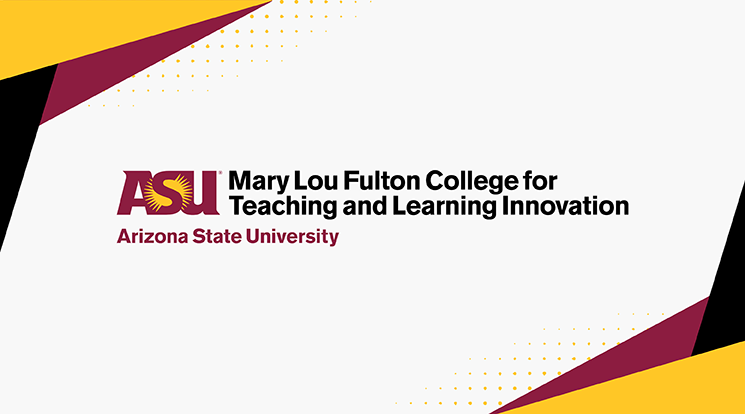New grant fuels adoption of redesigned school models

How can schools better serve learners and create more rewarding working environments and, ultimately, career paths for educators?
To tackle this question, ASU’s Mary Lou Fulton Teachers College received nearly $700,000 from the Bill & Melinda Gates Foundation to help schools outside of Arizona adopt Next Education Workforce models. The investment allows MLFTC to design and deploy technical assistance to catalyze the transformation of at least five schools over three years.
MLFTC will partner with a school district in California or Texas to implement Next Education Workforce models, which bring together teams of educators with distributed expertise to deepen and personalize learning for students. The models also empower educators by developing new opportunities for role-based specialization and advancement. Learn more about key elements of the model.
“Districts have realized a need to redesign their workforce models, but there are relatively few organizations offering technical assistance for schools and supporting their successful transformation,” says Principal Investigator Brent Maddin, executive director of Next Education Workforce. “This is exciting because we know that context matters. This is an opportunity for us to see how the model works in specific contexts as we work with local communities to refine the model. This idea is always as much about context as it is about scale. There are consistent principles about the value of team-based educators, but we are not building one-size-fits-all approaches. We are building school by school, community by community.”
Focusing on one district in California or Texas, MLFTC will work with a local teacher preparation provider to place residents on educator teams, ideally in paid positions. In this model, residents are senior-year students who work in teams as full-time associate teachers.
The work draws on lessons learned from MLFTC’s pilot of a team-based residency program in 2018–19, including research from a previous Gates Foundation investment.
“We learned a lot about what makes team-based residencies succeed,” says Nicole Thompson, director of MLFTC’s division of teacher preparation and Principal Investigator on the previous investment. “The model worked best when superintendents and principals fully understand the goals. When that happened, residents expressed greater degrees of satisfaction with their experiences; school administrators regarded residents as more prepared for first-year teaching positions than teacher candidates who had not participated in the pilot model.”
The partner district will identify — and the grant will partially fund — a “transformation director,” a district employee who will partner with MLFTC to provide school- and system-level support as the district implements Next Education Workforce models.
“Transitioning to this model is a process, and the progression will look different for each team, school and system,” Maddin says. “This investment by the Gates Foundation allows us to create a networked improvement community for district leaders to access resources and support as they work to address problems of practice.”
An investment from the Walton Family Foundation is helping to create concrete resources for schools implementing Next Education Workforce models, a research agenda, a national advisory board and more. The new Gates Foundation investment builds on this work and allows MLFTC to develop additional resources related to its technical assistance role in California or Texas. That ultimately benefits schools in Arizona and nationally, Maddin says. “The resources and community we’re creating are for any district who partners with us, that is committed to thinking differently about human capital. This is for anyone who wants to deliver on the promise of deeper and personalized learning for kids. This is for anyone who wants a more sustainable path forward for educators.”
“It’s for anyone,” he says, “who knows this isn’t just about a teacher shortage problem, but rather, a workforce design problem.”
Learn more:
Next Education Workforce: Building the Next Normal
Join us for a two-day virtual convening as we ask — and answer — questions of equity, deeper and personalized learning, and how to build a more effective and sustainable education workforce. Register now to join us January 28-29.